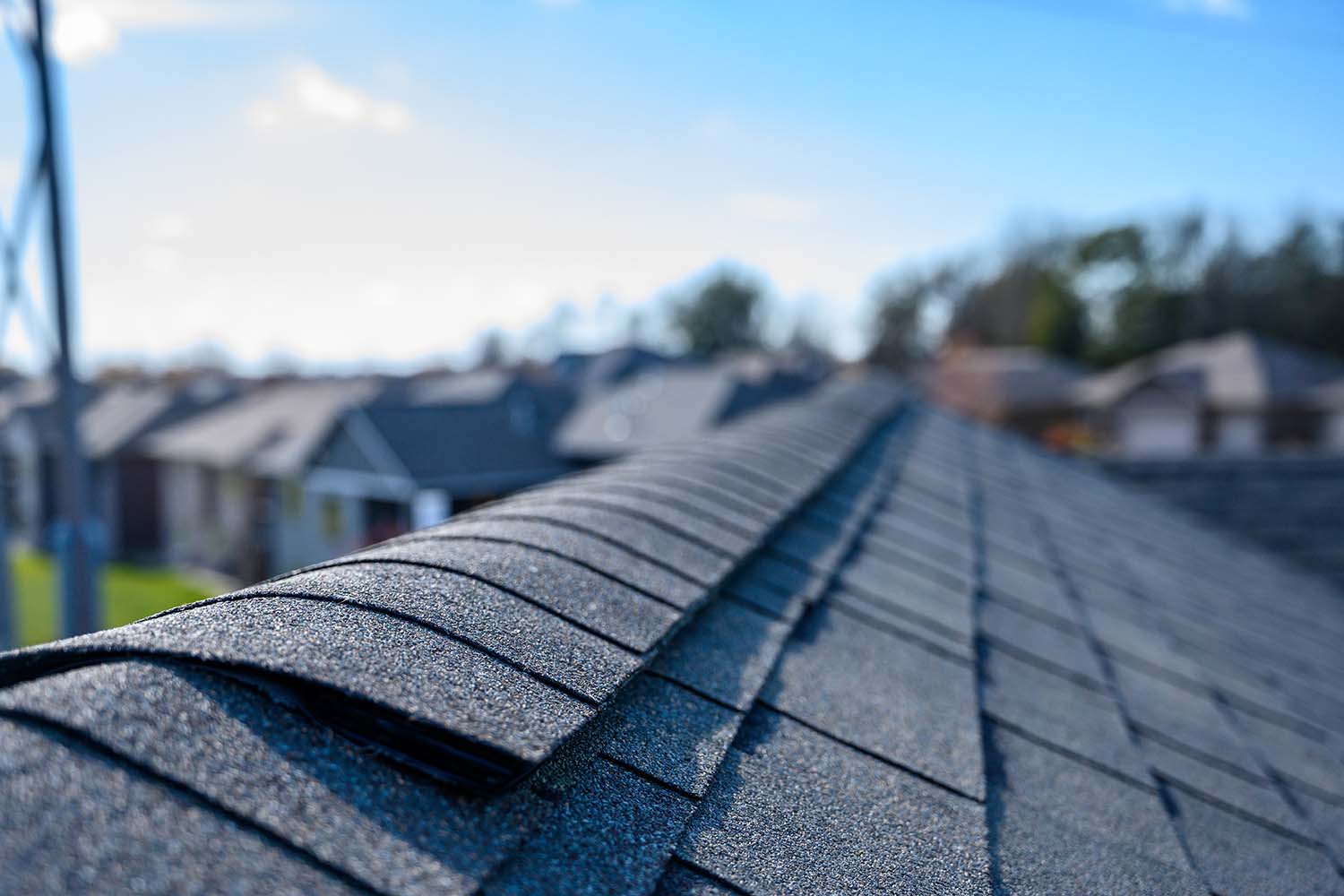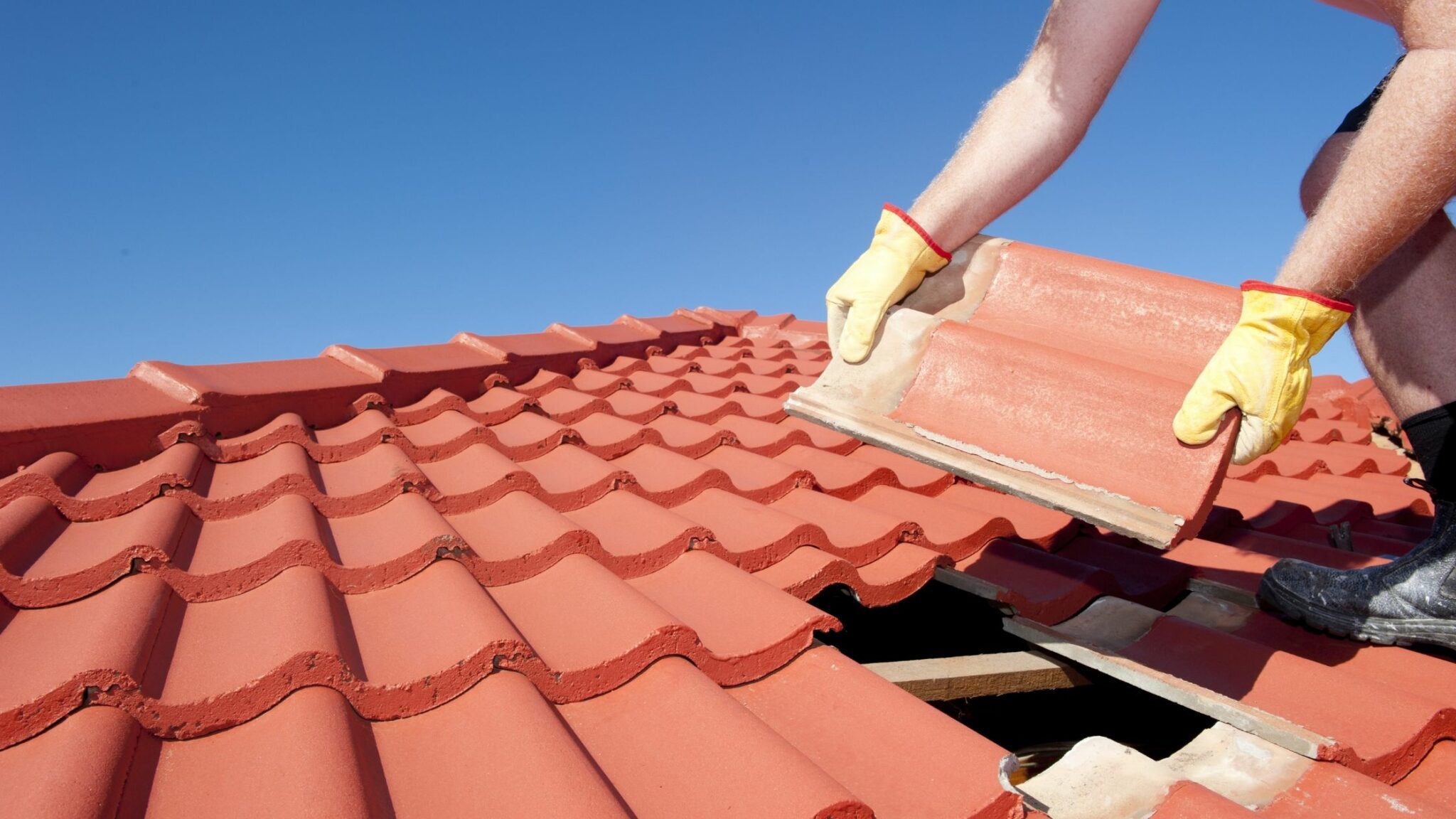Rumored Buzz on Roofing Repairs
Rumored Buzz on Roofing Repairs
Blog Article
Roof Replacement Baltimore: Expert Roofing System Restoration Solutions To Repair Leaks And Damage Efficiently
Exploring Different Kinds Of Roofing Repairs
Ever stared at a mystical dark patch on your roof and questioned, " What's really going on up there?" Often, identifying the best type of roofing repair work is like investigator work, unraveling ideas left by the weather, time, and wear. From subtle leakages to glaring damages, each repair type informs a story.

Common Roof Repairs Unveiled
- Leak Fixes: The tricky culprits-- tiny cracks or holes where water insinuates. Disregarding them can turn a moderate trouble into a pricey problem.
- Shingle Replacement: Missing out on or broken shingles aren't just an eyesore; they're invitations for water damage and bugs.
- Flashing Repair work: Those metal strips around chimneys and vents? When damaged, they end up being gateways for leaks.
- Roof Vent Repairs: Proper ventilation keeps your attic dry and your energy expenses low. When vents fail, the roof suffers silently.
When Small Fixes Make a Big Difference
Envision a good friend who neglected a small roofing leakage, believing it was no big offer-- up until a storm hit, turning a drip into a deluge inside their home. This anecdote underscores why prompt repairs matter. The right fix could be as easy as sealing a fracture or as involved as changing numerous shingles. How do you choose? Here's a quick decision guide:
| Problem | Typical Repair work | Indications to Look for |
|---|---|---|
| Leakages | Sealant application or patching | Water spots on ceiling, mold growth |
| Harmed Shingles | Shingle replacement | Missing out on granules, curling edges |
| Flashing Problems | Metal flashing repair or replacement | Rust, separation from roof |
| Ventilation Problems | Vent repair or installation | Extreme attic heat, moisture buildup |
Doesn't the intricacy of roofing repairs make you value the craftsmanship behind a sturdy roof? Often, a patchwork job isn't enough-- other times, a quick repair revives your entire roof. What's clear is this: comprehending the kinds of repair work empowers homeowners to act decisively, securing their investment before small cracks end up being broad gorges.
Revealing the Necessary Roofing Repair Work Products
When a roofing system whispers signs of wear, the materials you select for repairs can either extend its life or accelerate its death. Ever discovered how a handful of loose shingles can result in a cascade of leakages? That's the delicate dance in between asphalt shingles and weather's relentless assault. These shingles, frequently the very first line of defense, are valued for their balance between sturdiness and ease of setup. However be careful-- merely patching with mismatched shingles can turn a quick repair into a future headache.
Metal flashing typically escapes notice till water spots appear on ceilings. Yet, this unassuming strip guards vulnerable joints where different roofing sections fulfill. Flat Roof Replacements. A seasoned roofing contractor knows to check and replace corroded flashing before mold claims victory. It's the distinction in between a small repair and a costly interior remodelling
Materials that Matter
| Material | Common Usage | Professional Tip |
|---|---|---|
| Asphalt Shingles | Changing harmed or missing out on shingles | Match granule color and density for seamless mixing |
| Metal Flashing | Sealing roofing joints and around chimneys | Use corrosion-resistant metals and seal edges with roofing cement |
| Roof Cement | Sealing small cracks and protecting flashing | Apply while warm for best adhesion and longevity |
| Roofing Felt | Underlayment for moisture barrier | Essential thoroughly to avoid puncturing the water resistant layer |
Have you ever questioned why some roofs appear to weather storms unscathed while others falter? The secret often lies underneath the surface area in the underlayment. Roofing felt, a humble yet crucial material, serves as a 2nd guard when shingles stop working. Skimping here indicates welcoming wetness to slip in undetected. Here's a pro insight: always make sure the felt lies flat with no wrinkles; even a little bubble can trap moisture and lead to premature rot.
- Examine fasteners-- loose nails can loosen shingles and stir catastrophe.
- Utilize a multi-layer method; combining materials increases resilience.
- Keep in mind, roof cement is your good friend however not a cure-all; it's finest for spot repair work.
In the world of roof repairs, accuracy with materials goes beyond simple patchwork. It's a calculated symphony of texture, moisture control, and weather condition resistance. The next time you lift a shingle, ask yourself: does this repair work honor the roofing system's original defense or merely paper over the cracks?
Assessing the Damage with a Keen Eye
Ever climbed onto your roof just to understand that what looked like a small leak might be concealing a labyrinth of harmed shingles and warped decking beneath? The initial step in any roof repair is a meticulous assessment. Stroll the perimeter with care and look for curled edges, dark areas, or granule loss on the shingles-- these subtle signs typically whisper louder than an open hole. Don't just look; study the angles, here due to the fact that water infiltration hardly ever announces itself nicely.
Gathering Products: The Precision of Preparation
Before ascending the ladder, ensure you have all the needed tools at arm's reach. Envision the aggravation of stabilizing on a slanting surface area, realizing you forgot your roof cement or roof nails. Here's a list to keep helpful:
- Replacement shingles matching your existing roof
- Hammer and galvanized roofing nails
- Roof cement or sealant
- Utility knife for accurate cuts
- Flat lever to get rid of broken shingles
- Safety belt and non-slip shoes
Precision in Removal and Replacement
Getting rid of harmed shingles requires both strength and finesse. Place the lever gently under the shingle, raising nails without tearing adjacent locations. One may be tempted to pull forcefully, but gradual utilize prevents further damage. When putting new shingles, stagger them correctly-- remember, a misaligned shingle can become an entrance for rainwater, welcoming leaks that slyly deteriorate your home's structure with time.
Sealing the Deal: Preventing Future Leakages
Applying roofing cement isn't simply slathering tar; it has to do with creating a durable barrier. Dab a modest quantity under the shingle tabs and press strongly, ensuring a snug fit. Excessive cement can break in the sun, insufficient welcomes wetness. Have you observed how some roofing systems endure storms unharmed? That's the outcome of specialist sealing, a subtle art that transforms easy fixes into enduring security.
Security Tips Every DIY Roofer Must Swear By
- Never deal with a damp or windy day-- slips happen faster than you think.
- Use a strong ladder put on firm ground and check its angle.
- Use gloves to secure your hands from sharp edges and nails.
- Keep a first help set close by; small cuts can intensify if overlooked.
- Deal with a buddy whenever possible-- roofing systems aren't a solo experience.
Why Trusting Specialist Roofing Specialists Matters
Ever seen how an easy leak can quietly change into a disaster? Roof repair work demand accuracy, and hiring beginners often causes patchwork solutions that crumble with the next storm. A professional contractor doesn't just slap on shingles; they diagnose the source, whether it's worn flashing, jeopardized underlayment, or concealed rot.
Picture climbing onto the roofing yourself, armed with a hammer and some nails, only to understand you've gotten worse the problem. The truth is, roofing damage isn't constantly visible from the ground or even the attic. Specialists wield wetness meters and infrared cams-- tools that reveal the unseen. Would you trust your home's shield to guesswork?
Key Benefits of Professional Roofer
- Accurate Assessment: They determine subtle signs like granule loss or sagging decking that many miss.
- Code Compliance: Ensuring repairs fulfill regional building regulations, preventing future insurance headaches.
- Product Know-how: Picking the best products to match your roofing system's special profile and climate obstacles.
- Security First: Browsing steep slopes and heights with correct harnesses and equipment.
- Guarantee Guarantee: Support repairs with warranties that safeguard your financial investment.

Professional Tips for Employing the Right Roofer
- Validate licensing and insurance coverage-- do not bet with unproven credentials.
- Ask for a comprehensive written quote laying out scope and materials.
- Inquire about their procedure for dealing with surprise damage uncovered during repairs.
- Inspect how they handle debris elimination-- roof work should not leave a mess behind.
- Verify experience with your particular roofing system type, whether asphalt, metal, or tile.
In roofing repair work, faster ways typically cost more in the long run. The experts know when to fix, when to replace, and how to extend your roofing's life expectancy. Isn't it better to secure your home's first line of defense with those who see beyond the surface area?
Professional Roofing Repairs in Baltimore County
Baltimore County is a dynamic area known for its diverse neighborhoods and abundant history. With a population that delights in a mix of rural and city living, the county provides tourist attractions like the scenic Loch Raven Reservoir and the lively Towson Town. Citizens gain from a strong regional economy and access to quality public parks and cultural events, making it a desirable location to live and work.
For reliable suggestions and a complimentary consultation on roof repair work, think about reaching out to CRG Roofing and Siding. They supply expert assistance customized to your requirements and assist ensure your roofing system stays in exceptional condition.
Report this page